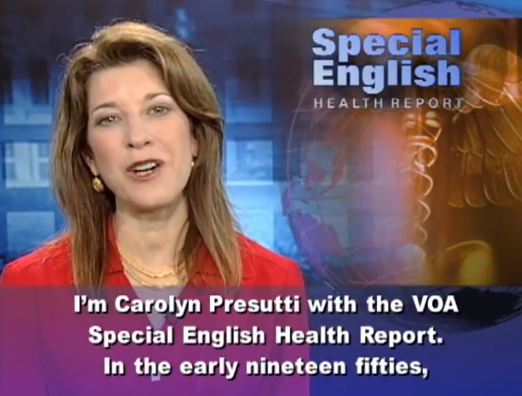
In the early nineteen fifties, researchers found that people scored lower on intelligence tests if they spoke more than one language. Research in the nineteen sixties found the opposite. So which is it? Researchers presented their newest studies in February at a meeting of the American Association for the Advancement of Science.
The latest evidence shows that being bilingual does not necessarily make people smarter. But researcher Ellen Bialystok says it probably does make you better at certain skills. She says: “Imagine driving down the highway. There are many things that could capture your attention and you really need to be able to monitor all of them. Why would bilingualism make you any better at that?”And the answer, she says, is that bilingual people are often better at controlling their attention — a function called the executive control system.
She says it is possibly the most important cognitive system we have. It is where all of our decisions about what to attend to, what to ignore and what to process are made.Ms. Bialystok is a psychology professor at York University in Toronto, Canada. She says the best method to measure the executive control system is called the Stroop Test. A person is shown words in different colors. The person has to ignore the word but say the color. The problem is that the words are all names of colors.
She explains: “So you would have the word ‘blue’ written in red, but you have to say ‘red.’ But blue is just lighting up all these circuits in your brain, and you really want to say ‘blue.’ So you need a mechanism to override that so that you can say ‘red.’ That’s the executive control system.”Her work shows that bilingual people continually practice this function. They have to, because both languages are active in their brain at the same time. They need to suppress one to be able to speak in the other. This mental exercise might help in other ways, too.
Researchers say bilingual children are better able to separate a word from its meaning, and more likely to have friends from different cultures. Bilingual adults are often four to five years later than others in developing dementia or Alzheimer’s disease. Foreign language study has increased in the United States. But linguist Alison Mackey at Georgetown University in Washington, D.C. points out that English-speaking countries are still far behind the rest of the world. For VOA Special English I’m Carolyn Presutti.
Words in This Story
intelligence – n. the ability to learn, understand, and make judgments or have opinions that are based on reason
present – v. to give, show, provide, or make known
advancement – n. the development or improvement of something
evidence – n. one or more reasons for believing that something is or is not true
bilingual – adj. able to use two languages equally well
necessarily – adv. (esp. in negatives) in all cases; as an expected result
capture someone’s attention – v. (also capture someone’s imagination) to interest someone
bilingualism – n. the fact of being able to use two languages equally well
executive – n. someone in a high position, especially in business, who makes decisions and puts them into action
cognitive – adj. connected with thinking or conscious mental processes
psychology – n. the scientific study of the way the human mind works and how it influences behaviour, or the influence of a particular person’s character on their behaviour
circuit – n. a closed system of wires or pipes through which electricity or liquid can flow
mechanism – n. a part of a machine, or a set of parts that work together
override – v. to take control over something, especially in order to change the way it operates
suppress – v. to prevent something from being seen or expressed
dementia – n. a medical condition that affects especially old people, causing the memory and other mental abilities to gradually become worse, and leading to confused behaviour
linguist – n. someone who studies foreign languages or can speak them very well, or someone who teaches or studies linguistics
Luyện nghe bản tin tiếng Anh y khoa thông qua bản tin VOA – special English, Health Report.
Xem thêm:
>>Luyện nghe bản tin tiếng Anh y khoa VOA 52
Anh Văn Y Khoa DR.DUY
https://facebook.com/anhvanyds
#anhvanyds #tienganhykhoa #anhvanykhoadrduy
Để lại một phản hồi Hủy